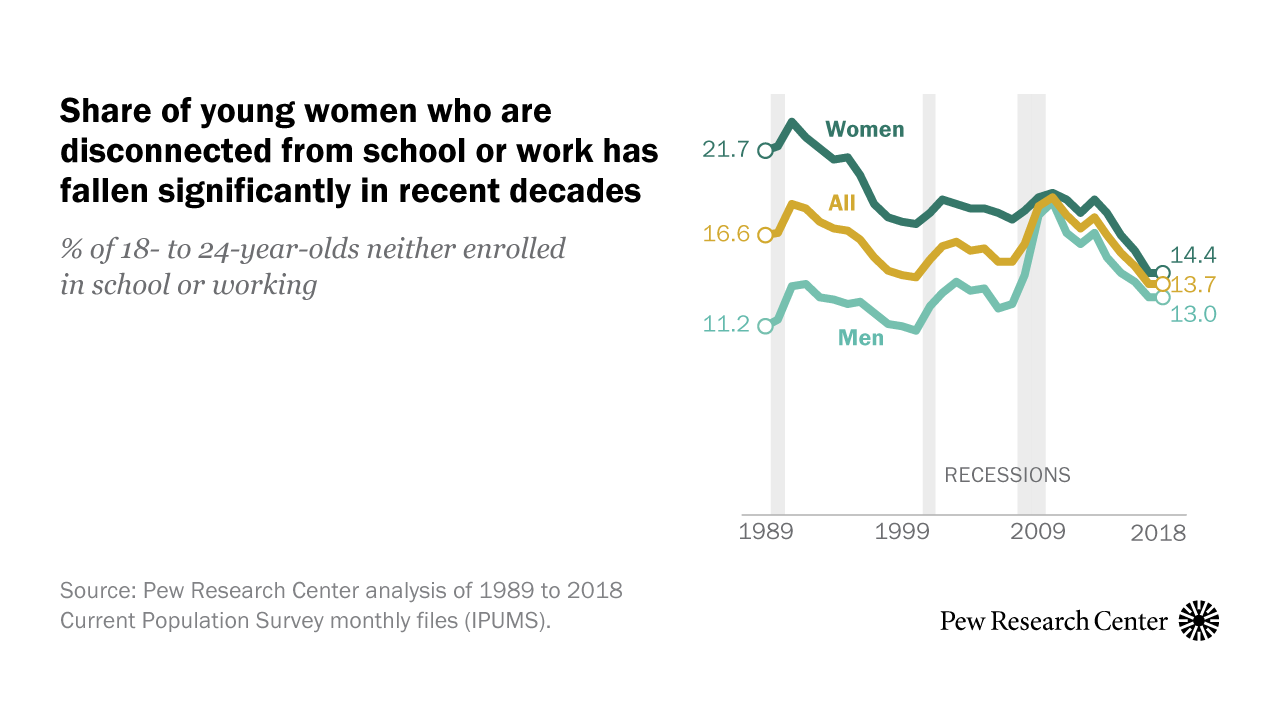A growing number of young Americans are facing disconnection from work, school, and a sense of purpose, with rates of disconnection on the rise since the 1990s. This trend is impacting the future prospects of young people, who are experiencing poor mental health and a lack of financial safety nets. Experts warn that this disconnection can have long-term consequences for individuals, including lower future earnings and reduced likelihood of homeownership.
Data from the Federal Reserve Bank of Dallas shows that the share of disconnected 18- to 24-year-olds has been increasing since the 1990s, with a spike observed in the 2020s. In 2022, 13.2% of individuals in this age group were considered disconnected. Measure of America, a research organization, found that nearly 4.7 million young people aged 16 to 24 were disconnected in 2021.
Disconnected youth, also known as opportunity youth, often face not only a lack of work and education but also a sense of purpose. This creates a divide among Generation Z, with some following traditional milestones while others are left behind. Economic circumstances beyond their control contribute to their disconnection.
The consequences of disconnection can be significant, impacting future earnings and the ability to own a home. For example, among 25- to 34-year-olds working full time in 2021, those without a high school diploma earned a median income of $32,500, while those with a high school diploma earned $39,700. Those with a bachelor’s degree earned a median income of $61,600.
Experts emphasize that disconnection from work and school can lead to a downward spiral, making it difficult for individuals to escape this situation. Limited access to resources, high poverty rates, and lack of transportation further exacerbate the issue. Disconnected youth often struggle with mental and physical health, as well as relationships with friends and the community.
Parents of disconnected youth express concern and a sense of helplessness. They observe a shift in priorities among young people, with education taking a backseat to other experiences. Policymakers and experts suggest implementing programs such as guaranteed income, expanding the social safety net, and providing universal preschool and childcare to address the issue.
While there is hope that disconnected youth will find their way, the challenges they face require comprehensive support and solutions. The mental health crisis among young people is gaining attention, and efforts are needed to ensure livable wages and holistic support for their well-being.
Overall, the rising number of disconnected youth in the United States is a concerning trend that requires attention and action to provide opportunities and support for this vulnerable population.











